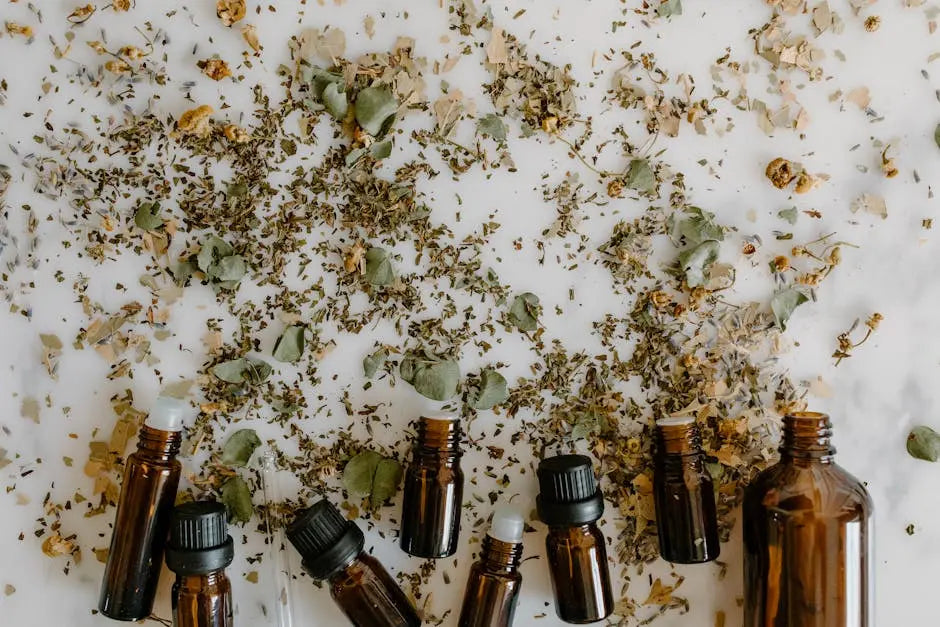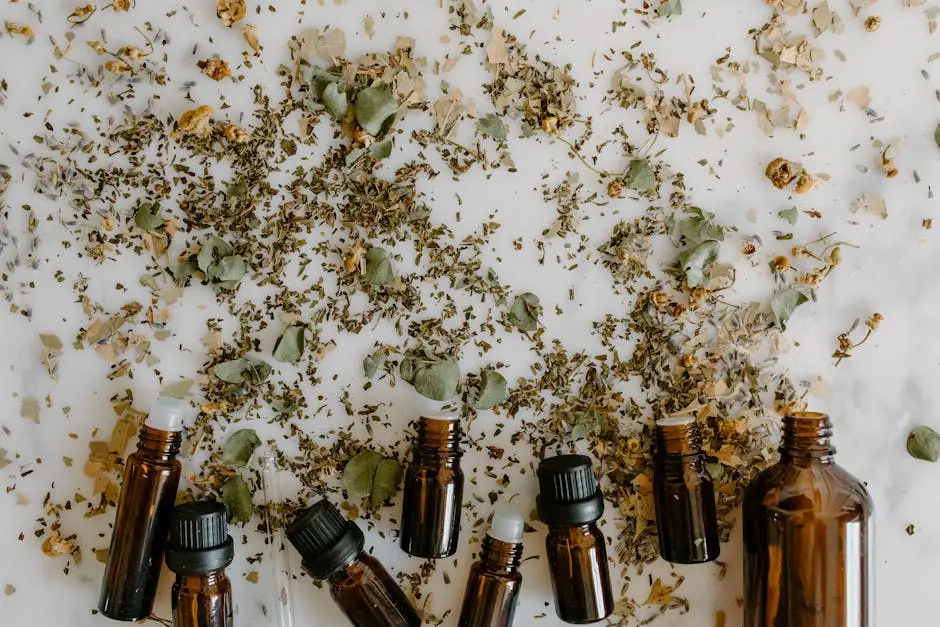
10 Fascinating Facts About Plant Extracts You Need to Know
Share
Delving into the world of plant extracts opens up a fascinating journey through health, wellness, and natural beauty. These powerful elixirs have captured human interest for centuries, serving as the building blocks for everything from traditional medicine to modern skincare. Join us as we explore some eye-opening facts about these incredible natural wonders.
1. Nature’s Concentrated Goodness
Plant extracts distill the goodness of nature into concentrated forms, bringing benefits from roots, leaves, flowers, and seeds directly to us in a potent package. Whether taken internally as supplements or applied externally in beauty products, these extracts provide a direct link to the earth’s natural pharmacy. For those interested in enhancing their well-being with natural ingredients, plant extracts offer a practical and effective option.
The diversity of plant extracts opens up a wide range of potentials, from enhancing health and beauty to preserving food and adding flavor to dishes. Imagine having the power of garlic oil to boost immunity or the charm of lavender oil to soothe the mind at your fingertip. These practical applications highlight the versatility and indispensability of these natural substances in everyday life.
2. A Historical Perspective
For thousands of years, civilizations have turned to plant extracts for medicinal and therapeutic uses, from Egyptian embalming oils to traditional Chinese medicine. Ancient societies leveraged the powers of plants like mint and aloe for healing wounds, while others, such as turmeric, have been used in culinary and health practices for centuries. This long-standing relationship with plant extracts underscores their enduring importance in human history.
Apart from their medicinal uses, plant extracts played significant roles in spiritual and ceremonial practices. The frankincense tree, for example, was highly valued in ancient Egypt for its fragrant resin, used in both religious rituals and embalming practices. Such historical utilization of plant extracts gives us insights into ancient lifestyles and the profound wisdom that continues to inform modern practices.
3. The Process of Extraction
Extraction methods such as steam distillation and cold pressing determine the purity and effectiveness of plant extracts, each technique capturing unique properties of the plant. Steam distillation, for instance, is ideal for oils found in plant glands and creates a high-quality, aromatic product. On the other hand, cold pressing is commonly used for citrus peels, yielding pure essential oils without heat. Understanding these methods is essential for appreciating the purity and potency of the extracts we use.
4. Essential Oil & Its Benefits
Essential oils derived from plant extracts have made waves for their aromatic benefits and therapeutic properties, offering stress relief and improved focus. The beauty of these essential oils is their capacity to influence emotional and physical health. Lavender and chamomile oils, for instance, are renowned for their calming effects, while oils like peppermint are invigorating and can enhance cognitive performance. These natural oils provide a myriad of options for supporting a modern lifestyle naturally.
5. Role in Modern Medicine
Many modern drugs are derived from plant extracts, showcasing nature’s tremendous influence on our pharmaceutical landscape and healthcare practices. Willow bark, historically used to relieve pain and inflammation, led to the discovery of aspirin, a cornerstone in pain management. Furthermore, the powerful anti-cancer properties of the yew tree have been harnessed in making widely-used chemotherapy drugs. Such examples highlight the significant influence of plant extracts on medical advancements.
The integration of plant extracts in pharmaceutical research continues to spark interest in academia and industry, fostering a promising future for natural solutions to health challenges. As science delves deeper, new compounds with potential health benefits are constantly identified, holding the promise of innovative treatments derived from nature’s bounty.
6. Natural Skincare Solutions
The cosmetics industry has embraced plant extracts for their natural and effective properties, creating skincare lines that promise hydration and rejuvenation. Products enriched with extracts like aloe vera, tea tree oil, and rosehip oil are now commonplace, praised for their ability to nourish and support the skin’s health holistically. Additionally, these extracts are making radical changes in natural skincare trends, pushing the boundaries of what’s possible in achieving healthy skin while remaining eco-conscious.
These natural ingredients not only promote skin vitality but also offer gentle alternatives to synthetic compounds, reducing the risk of irritation and allergic reactions. With consumers becoming more aware and discerning about what they put on their skin, the demand for plant-based skincare solutions is steadily rising, reinforcing the value of nature in beauty and personal care.
7. Flavor and Fragrance Powerhouses
Plant extracts are key in the flavor and fragrance industries, creating aromatic notes and distinctive tastes that define many of our beloved products. From the spicy allure of cinnamon to the sweet hint of vanilla, plant extracts bring depth and complexity to culinary creations and fragrance compositions. These natural flavors and aromas are not only prized for their sensory appeal but also for their ability to evoke emotions and memories, playing a vital role in consumer experiences.
8. Environmental Considerations
Harvesting plant extracts sustainably is crucial to ensure environmental balance, rewarding manufacturers who prioritize eco-friendly practices. By supporting ethical sourcing and minimizing waste in the production process, the industry can protect biodiversity and promote ecological health. These environmentally sensitive methods are gaining traction as part of a broader initiative towards a more sustainable future.
As consumers become more eco-conscious, the demand for sustainably sourced plant extracts is growing, encouraging companies to adopt greener practices. This shift not only helps preserve our natural resources but also enhances the value and integrity of the products offered, aligning with a more responsible lifestyle.
9. The Science Behind the Scents
Aromatherapy leverages the science of smells to boost mood and health, proving just how powerful a simple plant extract can be. By interacting with our brain’s limbic system, aromas can trigger emotional responses, help manage stress, and even improve immune function. With essential oils becoming a staple in everyday wellness routines, this approach highlights the scientific basis for using plant extracts in promoting human health holistically.
10. Future Trends in Plant Extracts
With continued research, the future of plant extracts promises innovation, potentially unlocking new health benefits and eco-friendly practices. The integration of biotechnology and green chemistry is setting the stage for more refined and sustainable extraction methods that can cater to the increasing demand for plant-based solutions. As scientific discoveries advance, we can anticipate an exciting evolution in the way plant extracts are utilized, ultimately enhancing our quality of life in harmony with nature.
Emerging trends point towards personalized wellness solutions, where plant extracts are tailored to meet individual health and lifestyle needs. This dynamic field continues to intrigue and inspire, inviting us to explore the limitless potential of harnessing nature’s intelligence for modern-day challenges.
